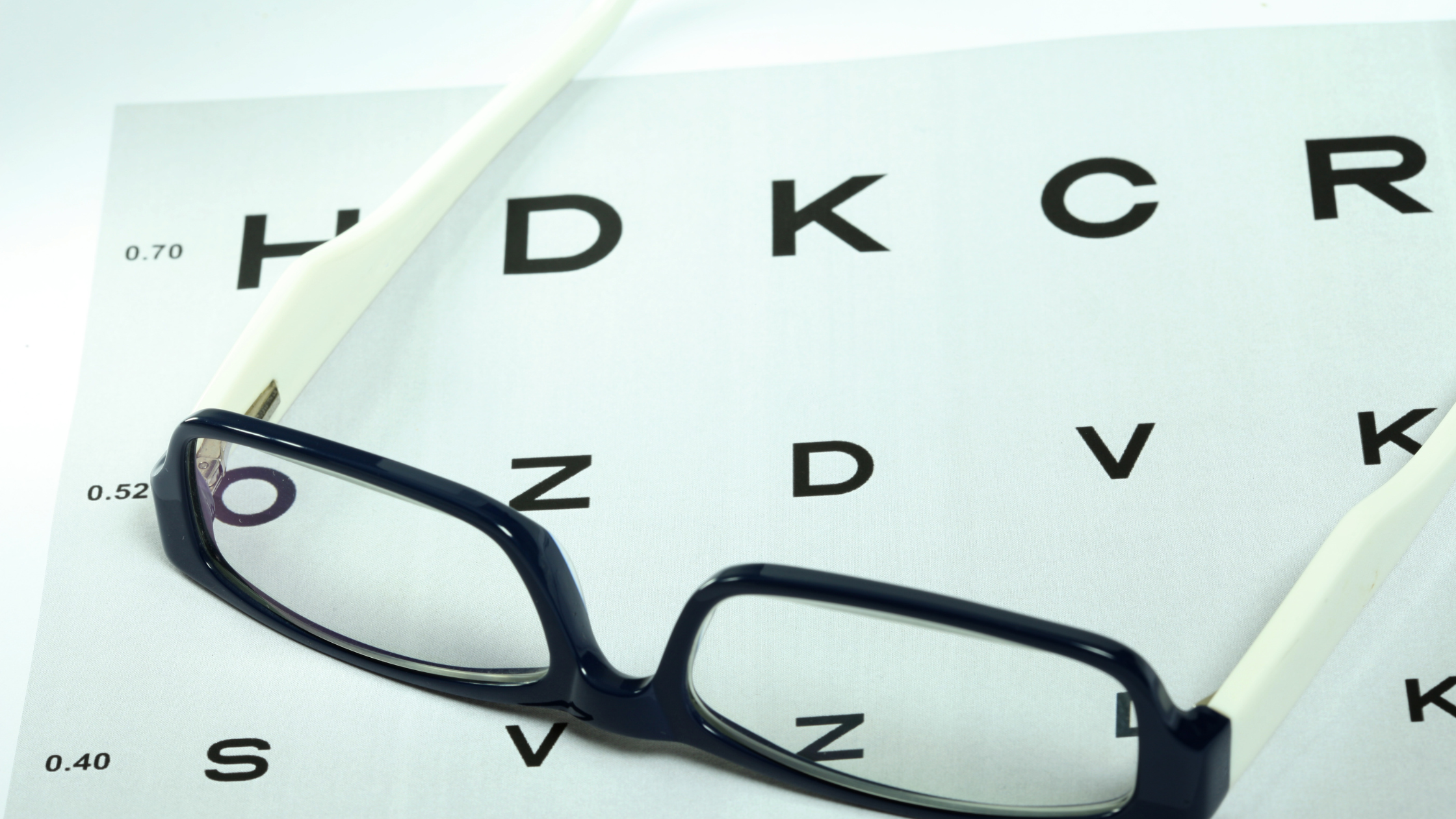Clear vision is something that many people take for granted – until they develop an eye condition of some kind.
And eye problems are not uncommon. According to the Centers for Disease Control (CDC), vision disability is one of the top 10 disabilities among adults 18 years and older in the United States. Around 12 million people 40 years and over have vision impairment. It’s also one of the more prevalent disabilities among children.
Some eye conditions can’t be avoided, particularly those caused by accidents or genetics. However, there are certain things you can do to avoid the degeneration of your eyesight. Taking these actions can prevent certain eye conditions – and if you already have an eye condition, they might prevent it from getting worse.
Not many of us are taught to take care of our vision. Here are some essential tips on maintaining healthy vision and avoiding eye damage.
1) Eat a healthy, balanced diet
When you feed your body the right stuff, you’ll reap the rewards. This applies to all aspects of your health, including your eyesight.
You might have heard the old wives’ tale about eating carrots to improve your vision. Well, there’s actually a lot of truth to that – carrots contain vitamins A and C, which help maintain healthy vision.
However, carrots aren’t the only vegetables that can help maintain vision. The following vegetables contain vitamins A, C, and E, all of which are essential for eye health:
- citrus
- broccoli
- red peppers
- spinach and other leafy greens
- strawberries
- sweet potato
Omega 3 fatty acids are also important for eye health – and they help with a range of other health concerns, too. Fish, particularly salmon, and flaxseeds contain high doses of omega 3.
2) Use dietary supplements
Dietary supplements aren’t always necessary if you’re eating a full, balanced, healthy diet. For most people, a diet filled with a variety of vegetables, proteins, grains, and healthy fats will ensure that they get the vitamins and minerals that their bodies need.
However, it can be wise to take supplements in certain circumstances. If you have a deficiency, or if your diet is limited, supplements can help. Deficiencies in certain minerals can lead to poor eyesight. It can also cause inflammation, which can worsen eye health.
So, which supplements can help maintain your vision health? Try the following:
- Vitamin A
- All B vitamins, including folic acid
- Vitamin C
- Vitamin E, although vitamin E deficiencies aren’t common
- Omega 3
- Carotenoid supplements, which help maintain the carotenoids in your retina
As always, it’s a good idea to discuss supplements with your doctor. A doctor is best equipped to advise you on using any health product, including over-the-counter medications and health supplements.
Here at Knew Health, we offer our Members discounts on dietary supplements and vitamins, among other perks and services.
3) Wear sunglasses
When you hear of sun protection, you probably think about sunscreen. And while sunscreen is important, protecting your eyes should also be a priority.
High-quality sunglasses can protect your eyes from sun damage, which can lead to cataracts, macular degeneration, and astigmatism. Opt for sunglasses that block out 99 to 100 percent of UVA and UVB radiation from sunlight.
You can also use a wide-brimmed sun hat or peak cap while you’re out on a sunny day. It’s also a good idea to take a break from the sun once in a while and spend some time in the shade.
And if you’re doing a specialized activity, such as welding, it’s essential to wear appropriate protection (not regular sunglasses). When skiing or doing similar snow sports, you should use sun goggles.
4) Give your eyes a break from the screen
Staring at a TV all day won’t give you square eyes – but it can damage your vision. Unfortunately, most of us have to use computers and phones for hours every day in order to work and communicate with loved ones.
To help with this, give your eyes a break from the screen. One trick is to follow the 20-20-20 rule. Every 20 minutes, you should stop staring at your computer and look at something 20 feet away for 20 seconds.
There are a few other ways to reduce the impact a screen has on your eyes. For example:
- Ensure your room/office is well-lit. If the entire room is dark except for your screen, it’ll harm your eyes. Try to curb late-night phone use, too.
- Reduce the glare on your screen by opting for a screen with a matt, anti-glare coating.
- Reduce the blue light on your phone and computer. Phones often have a “night mode” to reduce eye strain.
- Keep a distance from the screen. Holding your phone too close to your face, or sitting too close to your computer, can cause eye damage. A screen should be at least between 16 and 18 inches away.
- Lower the brightness where necessary. This prevents eye strain.
Although screens are an inevitable part of our lives, it’s important to take breaks when you can. For recreation, a little TV and phone time is fine – but try to give your eyes some rest after work and on weekends.
5) Clean your contact lenses
If you use contact lenses, cleaning them often is essential. Disinfect them regularly with a quality lens solution. Only ever handle them when your hands are clean. Debris and bacteria can harm the tissue on your eyes, which can worsen eye conditions and cause infections.
And of course, replace them when needed. Depending on the kind of contact lens you have, you’ll probably have to replace them once a month – check with your optometrist if you’re not sure. If you swim often, particularly in the ocean, you might need to change your contact lenses more regularly.
To make this easier, set a reminder on your phone to change your contact lenses on the same date every month. Clean and replace your contact lens case often, too, to prevent infections.
6) Quit smoking
If you need another reason to quit smoking, here it is!
Smoking doesn’t just harm your lungs, heart, teeth, and skin – it also harms your eyes. Smoking increases your risk of developing cataracts and age-related macular degeneration.
The good news is that your body starts to recover within the first few hours of smoke cessation. If you’d like to quit cigarettes but you’re not sure how to start, speak to your primary care provider.
7) Stay fit
We all know that fitness is essential for health, but believe it or not, your eyesight will benefit too.
High blood pressure and diabetes type 2 can cause a range of eyesight issues. Regularly exercising can help prevent both blood pressure problems and diabetes.
We also recommend having regular check-ups to monitor your blood pressure and blood sugar levels. We offer a free annual fasting insulin test to our Members, which is one of the quickest and most accurate ways to determine whether you’re heading towards insulin resistance and diabetes.
8) Manage chronic diseases
Some chronic diseases can affect your vision. For example, diabetes can cause full or partial blindness. High cholesterol, asthma, cancer, and high blood pressure can also affect your eye health.
But if you manage those conditions well, they’re less likely to lead to eye conditions.
Managing your conditions can include:
- Regular appointments with your health care practitioners
- Maintaining a healthy diet, as per your doctor’s instructions
- Exercising, as per your doctor’s instructions
- Taking medication correctly
- Avoiding alcohol, cigarettes, and other drugs
9) Reduce stress levels
You already know that chronic stress is terrible for your mind and body. This includes your eyes.
In fact, research has shown that stress can cause a range of eye health problems. When you’re stressed, your cortisol levels rise. This isn’t necessarily a bad thing – it helps your body when you’re in “flight or fight” mode.
However, when you’re always stressed, your cortisol levels will be high constantly. Your body struggles to deal with that amount of cortisol. This can lead to chronic inflammation.
And inflammation can cause a range of issues in the body, from digestive problems to insulin resistance. It can also cause eye problems, as the sensitive eye tissue might become inflamed. As you can imagine, having eye problems can be stressful in itself – so this can be a self-perpetuating cycle.
Additionally, as mentioned before, managing chronic diseases can help prevent eye damage – and lowering your stress levels will help keep those chronic diseases under control.
Try to reduce your stress levels where possible. This can include:
- Cutting back on responsibility in work and at home where possible
- Participating in a hobby that you enjoy
- Meditating or doing mindfulness exercises
- Trying deep breathing exercises
- Journaling to express and process your feelings
- Exercising – we’ve mentioned this before, but it’s worth repeating!
- Trying talk therapy or counseling, especially during tough times
- Spending time with loved ones who support you
- Getting enough sleep every night
Reducing stress is easier said than done, but if you introduce a few positive changes in your life, you might find that it feels a bit more manageable.
10) Have regular check-ups
If you have any eyesight problem, you need to visit an optician regularly. This enables them to diagnose issues quickly. Plus, wearing glasses or contacts that are too weak or too strong can damage your vision further.
The same goes for anyone who suspects they might have a vision issue. Rather go to an optician and rule it out than strain your eyes for months or years. As you age, you’re more likely to develop a vision problem, so it’s a particularly good idea to get regular check-ups.
According to the CDC, an estimated 93 million adults in the United States are at high risk for vision loss – yet only half of them have visited an eye doctor in the past 12 months.
The CDC also notes that most people who don’t seek eye care do so because of lack of awareness or because of the high costs associated with vision care. Knew Health offers a range of perks and services for Members, such as discounted supplements, discounted lab work, health coaching, and more to assist in promoting wellness and avoiding chronic medical conditions and costly bills.
Disclaimer: This information is being provided to you for educational and informational purposes only. It is being provided to educate you about how to take care of your body and as a self-help tool for your own use so that you can reach your own health goals. It is not intended to treat or cure any specific illness and is not to replace the guidance provided by your own medical practitioner. This information is to be used at your own risk based on your own judgment. If you suspect you have a medical problem, we urge you to take appropriate action by seeking medical attention.










































